
Building from below
Max Shanly •Max Shanly outlines a perspective on a framework for the new left party.
This contribution by Max Shanly to the debate on the potential new left party was first published on Max Shanly’s blog. We reprint this piece as part of the broader discussion on this site that includes the perspectives agreed by the recent rs21 All Members Meeting and Jonas Marvin’s discussion of left strategy ‘The rocky road to power: notes on a new left’.
A democratic roadmap towards a new model left party
The British left stands at a crossroads. We either keep going as we are — splintered, bickering in echo chambers and WhatsApp groups, more preoccupied with scoring points against one another on social media than confronting capital — or we grow up and get organised.
That means building something real and tangible. Not another hollowed-out vehicle for careerists, or a think tank strung together with spreadsheets and a mailing list, but a genuinely democratic and socialist party — unlike anything previously seen on our shores.
A party forged in the fire of struggle. An organisation that unites socialists of every stripe: from the furthest-most left-wing of social democracy, right the way through to revolutionary socialists — united not by doctrinal rigidity, but by a shared, immutable commitment to the cause of working-class self-emancipation.
A party for every partisan of the working class: rank and file trade unionists, community organisers, anti-fascists, anti-war campaigners, climate activists, and those drawn from the many movements that have emerged across recent years and decades — all bound by a collective desire not merely to protest the capitalist system, or attempt to manage or mitigate its excesses, but to organise to overcome it.
A mass, disciplined, unitary, radically democratic, multi-tendency socialist party, led from below — one that is unambiguously committed to digging trenches in society and placing itself at the centre of working-class life. A party led by the working class and built in their own image, preparing the working class — and ourselves — for a nationwide struggle for power, and decisive victory in the battle for democracy, as part of a growing international movement committed to the worldwide struggle to
place society under the democratic rule of the working class.
A party equal to the demands of the struggle — militant in action, disciplined in form, and democratic in practice and principle.
A party informed not by vibes or feelings, the distractions of parliamentary affairs, or an agenda set by capitalist parties and their allies in the press, but a party of the working class, independent from all others — one that stands in elections, but is not defined by them — a party firmly rooted in material reality, based upon the lessons of generations of class struggles that have passed, along with those to come, and ideologically reinforced by the socialist imagination. This is not a utopian fantasy. It is the political necessity of our time.
This document sets out a draft framework for the foundation of that party. It is not a fixed blueprint, nor the declaration of an intention to found anything unilaterally. Rather, it is a strategy for collective construction — democratic in content and form, open to amendment, and oriented toward class organisation, unity through struggle and our political diversity, and towards the democratic conquest of power.
Not a final word, but a first step.
I. Build the foundation before the house
You don’t declare a party into existence. You build it — and you build it to last. Not just for a single election campaign, or a decade focused entirely on short-term concerns, but something that can — and must — exist for generations, long after its founders are dead and buried.
Before the party can be founded, the left must organise to found it — openly, publicly, and democratically. A founding conference, conducted in person, across a full weekend, and structured as a working political event, not a celebration or rally — deliberately designed to establish the party’s political, structural, and organisational basis, with participation from all working-class partisans — a gathering of those prepared to build, not to posture. An open invitation should go out across the movement: to rank-and-file trade unionists, community organisers, social movement activists, anti-imperialists, anti-fascists, and socialists/anti-capitalists of all stripes — both reformists and revolutionaries.
An organising committee of no more than fifteen people — drawn broadly and representatively from across the movement — should be established to coordinate preparations. Upon announcing the founding conference, this committee will publish a full draft constitution and standing orders for open public discussion, critique, and amendment, alongside procedural rules governing the conference consistent with those drafts.
To safeguard the democratic integrity of the founding process, all members of the organising committee must recuse themselves from standing for elected positions within the interim national leadership to be elected at the founding conference. Furthermore, they must make a clear, publicly accessible statement pledging not to endorse any leadership candidates before or during the conference. This measure prevents structural biases and conflicts of interest, ensuring a fair and open election free from undue influence by organisers.
Clear rules for participation, debate, and voting will be published in advance, at the time of the announcement of the conference, along with (no later than a month prior to the conference itself) a provisional agenda to be amended and adopted at the start of the conference.
All major decisions — including the party’s name, structure, principles, rules, priorities, and an interim political platform — will be made democratically by conference attendees, based on submissions and proposals (including amendments) from below, with a cut-off period of no longer than a month before the conference. No closed committee or self-appointed leadership will impose decisions; all authority rests with those present.
II. Set the cornerstone
All registered attendees will have the right to submit political and organisational motions alongside amendments to draft constitution and standing orders, the provisional conference agenda, and those motions themselves, in advance of the conference, provided proposals demonstrate clear support — for example, at least fifty co-signatories among other registered attendees — to ensure grounded, collective contributions.
Attendees will be actively encouraged, in advance of the conference, to form public factions, tendencies and platforms around specific ideas, strategies and proposals. A central website will publish proposals, draft documents, and discussion materials, each with space for arguments for and against. A well-moderated, permanent online forum will be set up for open and constructive debate, discussion, and informal, bottom-up amendment of proposals. These are to be discussed in full and, if necessary, clarified or combined, at the conference itself as per the democratic will of the attendees. Before a decision is made, a brief summing up of the main arguments for and against each proposal is to be provided, ensuring all perspectives are heard and understood.
The organising committee should propose that a programme commission be formed to draft the party’s political programme — a comprehensive statement of aims, principles, and long-term socialist strategy, not a mere election manifesto. All attendees are given the opportunity to express their views and arguments on the issue at hand in a respectful and orderly manner. The matter is resolved by a democratic vote of all attendees present. The outcome of the vote is binding and must be respected and accepted by all participants, although they retain the right of freedom to dissent and advocate for an alternate position, both internally and externally, but are expected to work alongside others towards the outcome of the vote’s practical implementation. The results of all votes and the reasoning behind key decisions are recorded in the minutes for transparency and future reference — and distributed up and down the party’s structural chain.
The conference will elect an interim, collective national committee using proportional representation, with the method to be decided by attendees and enshrined in the constitution. This committee will in turn, elect a standing committee, and provide all political and strategic national leadership until the first annual conference. There should be open channels for member input, regular branch meetings, transparent leadership reporting, and recall mechanisms will be maintained — recognising that effective leadership is a two-way street. Leadership must be responsive to the membership — not just in rhetoric, but in structure.
That means putting in place clear, enforceable mechanisms by which members, through their local branches and nationally elected bodies, may hold their leadership directly to account. Any member of the interim or permanent national leadership should be subject to recall. The right to recall is not a weapon of factional intrigue — it is a guarantee of political accountability. It exists to keep the party rooted in its structure, not floating above it. No one — however experienced or politically capable — is entitled to their post. All leadership is temporary, conditional, and accountable.
III. Growing the organisation, building the movement
After the founding conference, the party will be informally, but publicly, launched and membership opened to all who agree with the adopted constitution and principles, and accept (not agree with) the interim political statement as the guiding document of party work. The interim committee will appoint a national director to oversee day-to-day operations, administration, and coordination, and to hire staff as directed. This is strictly an administrative role — implementing committee decisions, managing logistics, communications, and party infrastructure.
The national director does not set policy or strategy, is accountable to the elected national leadership and, through it, the membership, and must present a report on staff and administration at the annual conference, subject to approval or censure by delegates. As a matter of organisational policy, the following safeguards should be implemented:
1. Staff, including the national director, are constitutionally barred from participating in or influencing political decision-making or strategy beyond their rights as ordinary party members.
2. All staff appointments and employment practices are transparent, merit-based, and overseen by the elected leadership.
3. Staff are explicitly prohibited from organising as a political bloc or faction, with this prohibition enshrined in staff contracts and party rules.
4. At the same time, staff are actively encouraged to join a trade union to protect their employment rights and promote good workplace standards.
5. Staff are to be regularly trained and inducted in the party’s democratic ethos and the importance of neutrality in administrative roles, with a strong cultural emphasis that staff occupy service roles, supporting the democratic decisions of the membership and leadership, not advancing their own personal or factional agendas.
6. That open communication and interaction between staff, leadership, and members be actively encouraged so as to prevent the formation insular networks or cliques.
A mass membership drive will be carried out through social media, events, and outreach to unions, community groups, social movements, and other working class institutions. Introductory sessions and reading groups will be run to build a shared, vibrant political culture and prepare members for active engagement in all aspects of party life. Members will be invited to organise local branches, working groups, and commissions in line with the framework stipulated in the party’s constitution and standing orders. Members must submit charter applications detailing their purpose, founding members, and a basic activity plan.
National leadership will review and approve charters, ensuring alignment with principles and the party’s constitution, and providing resources and support; allowing for a scaled, organised (from below and above), but rapid roll out of the party apparatus nationwide. Organising guides, toolkits, mentorship and other resources (including financial) will be provided on an ongoing basis. Annual charter renewals and brief, publicised activity reports throughout the year will be required for accountability and open, collective development.
IV. Draft the blueprint
The programme commission will integrate broad member input, encouraging proposals and amendments from below. Members should be welcome to volunteer to serve on the commission, whether centrally or otherwise, and there should be space for factional representation to ensure an initial party programme that can — subject to amendment or rejection by the first annual conference — achieve broad acceptance amongst the membership.
Debates, webinars, and regional and local membership meetings are to be organised to discuss key questions and proposals, during the entire lifetime of the commission, ensuring the programme reflects the collective will and strategic priorities of the membership.
V. From movement to party
The first annual conference will be convened by July 2026 at the latest. Delegates will be elected in two ways: local party groups will elect delegates by proportional representation based on their membership size, and delegates at-large will also be elected by proportional representation through an open, online ballot. The membership, through its conference, is the sovereign body of the party. Delegates will debate, amend, and vote on the draft political programme, party policies, strategy, and priorities, which will guide all party work and direction. Constitutional amendments will also be heard and voted on.
A new collective national leadership will be elected by the conference delegates for a one-year term, using proportional representation as enshrined in the party constitution. This leadership will implement the political programme, be accountable to — and recallable by — the membership, and establish a standing committee to provide day-to-day leadership of the organisation. Upon adoption of the political programme and election of the leadership, the party will be formally launched as a unified, member-driven, democratic socialist party. All campaigns, public positions, and priorities will be guided by and in line with the democratically adopted political programme. Annual conferences will review, and where necessary, revise or replace the political programme, amend the constitution, and pass resolutions on policies, strategy, and priorities. Delegates will then elect a new leadership for annual term.
Each conference will be a forum for robust, healthy, and constructive debate, ensuring all arguments are heard and considered, with its decisions implemented by the incoming party leadership. The national director must present a detailed report on staff and administrative activities, subject to approval or censure by conference delegates.


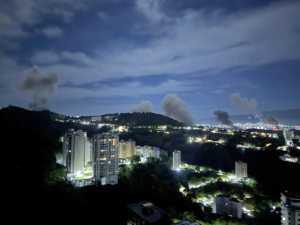
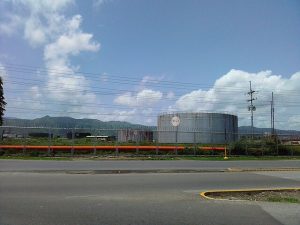
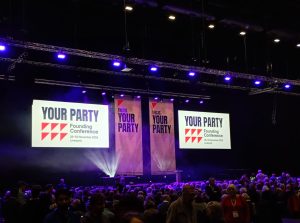

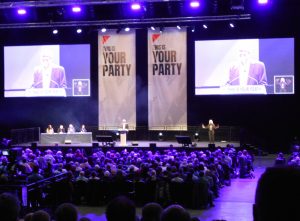


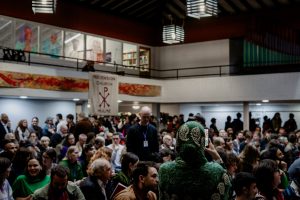
1 comment
Is this what socialists should be doing in Corbyn and Zara Sultana’s Your party?
Im from Norwich and the your party is sort of forming. This is what we need to do?
its a bit chaotic and full of the older left and we carry baggage. We need to organise in a new way. And bring in different activists.
Also, how do we deal with real serious problems and divisions on the left?
Everyone is joining the your party but in the trade unionist for trans rights groups i got hammered for defending Corbyns Your party because of Mark Serwotka and Salma Yaqoob have joined and they are homophobic and transphobic.